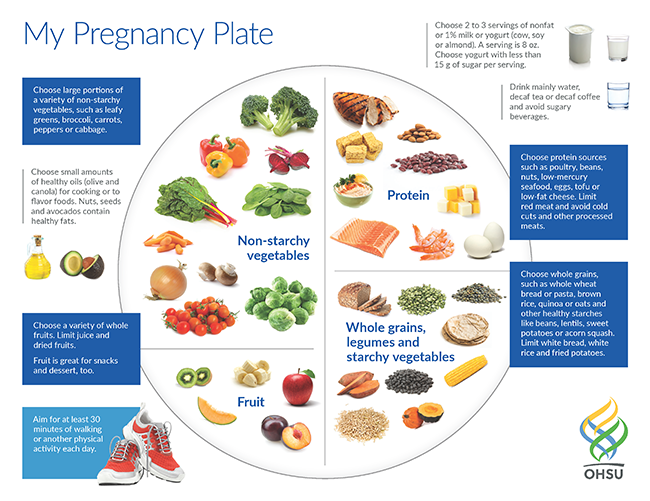
Pregnancy Nutrition and Health: A Comprehensive Guide
Pregnancy is a transformative journey that requires a heightened focus on nutrition and health. The choices a mother makes during this period have a profound impact on the well-being of both herself and her developing baby. This comprehensive guide will delve into the essential aspects of pregnancy nutrition, providing evidence-based recommendations and practical tips to support a healthy pregnancy.
Nutritional Requirements During Pregnancy
The nutritional needs of pregnant women increase significantly as their bodies work to support the growth and development of the fetus. The following essential nutrients require special attention:
- Protein: Building blocks for fetal tissues, organs, and muscles. Aim for 71 grams per day.
- Iron: Prevents anemia, which can lead to premature birth and low birth weight. Aim for 27 milligrams per day.
- Calcium: Strengthens bones and teeth. Aim for 1,000 milligrams per day.
- Folic Acid: Prevents neural tube defects. Aim for 600 micrograms per day.
- Vitamin D: Supports calcium absorption and bone health. Aim for 600 IU per day.
- Omega-3 Fatty Acids: Essential for brain and eye development. Aim for 200 milligrams of DHA per day.
Healthy Eating Habits
To meet these increased nutritional needs, pregnant women should adopt a balanced and varied diet that includes:
- Fruits and Vegetables: Rich in vitamins, minerals, and antioxidants. Aim for at least 5 servings per day.
- Whole Grains: Provide fiber, energy, and essential nutrients. Choose whole-wheat bread, brown rice, and oatmeal.
- Lean Protein: Essential for fetal growth and development. Include lean meats, poultry, fish, beans, and lentils.
- Dairy Products: Excellent sources of calcium and protein. Choose low-fat or fat-free options.
- Healthy Fats: Support fetal brain and nerve development. Include olive oil, avocados, and nuts.
Foods to Avoid During Pregnancy
Certain foods can pose risks during pregnancy and should be avoided or limited:
- Raw or Undercooked Meat, Fish, and Eggs: May contain harmful bacteria.
- Unpasteurized Milk and Cheese: Can contain harmful bacteria.
- Raw Shellfish: High in mercury, which can damage the developing brain.
- Alcohol: Can cross the placenta and harm the fetus.
- Excessive Caffeine: May increase the risk of miscarriage and low birth weight.
Supplements During Pregnancy
While a balanced diet should provide most of the necessary nutrients, some supplements may be recommended by a healthcare provider:
- Prenatal Vitamin: Contains a combination of essential vitamins and minerals.
- Iron Supplement: May be needed to prevent anemia.
- Calcium Supplement: May be needed to ensure adequate calcium intake.
- Folic Acid Supplement: May be needed to prevent neural tube defects.
Weight Gain During Pregnancy
Healthy weight gain during pregnancy is crucial for both mother and baby. The recommended weight gain varies depending on pre-pregnancy weight:
- Underweight: 28-40 pounds
- Normal weight: 25-35 pounds
- Overweight: 15-25 pounds
- Obese: 11-20 pounds
Exercise During Pregnancy
Regular exercise during pregnancy offers numerous benefits, including:
- Reduced risk of gestational diabetes and preeclampsia
- Improved mood and energy levels
- Strengthened muscles and joints
- Preparation for labor and delivery
Choose low-impact exercises such as walking, swimming, or prenatal yoga. Consult with a healthcare provider before starting any new exercise program.
Hydration
Staying hydrated is essential during pregnancy. Aim for 8-10 glasses of water per day. Avoid sugary drinks like soda and juice.
Other Health Considerations
In addition to nutrition, pregnant women should pay attention to other aspects of their health:
- Prenatal Care: Regular prenatal appointments are crucial for monitoring the health of both mother and baby.
- Dental Health: Pregnancy hormones can increase the risk of gum disease. Brush and floss regularly.
- Mental Health: Pregnancy can bring emotional challenges. Seek support from family, friends, or a therapist if needed.
- Sleep: Aim for 7-9 hours of sleep per night.
- Smoking and Alcohol: Avoid smoking and alcohol consumption during pregnancy.
Conclusion
Pregnancy nutrition and health are intertwined. By following the recommendations outlined in this guide, pregnant women can provide the best possible foundation for the growth and development of their babies while ensuring their own well-being. Remember to consult with a healthcare provider for personalized advice and support throughout this transformative journey.